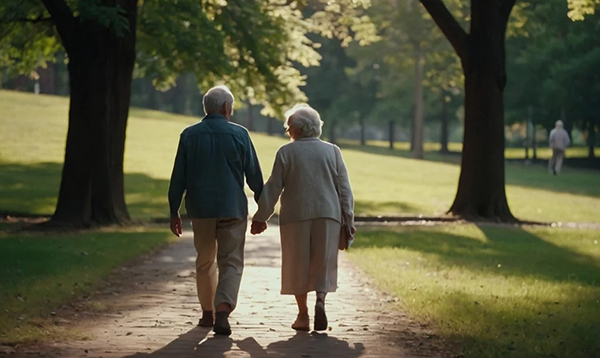Every year, October 20 is World Osteoporosis Day. On October 9, the Osteoporosis and Bone Mineral Salt Disease Branch of the Chinese Medical Association and the Health Communication Branch of the Chinese Preventive Medical Association jointly announced the Chinese theme of the 2024 World Osteoporosis Day as "Weight management, strong bones", and proposed that all walks of life in society jointly spread the concept of scientific weight management and strong bones on the day of disease. To prevent osteoporosis and fragility fractures.
Xia Weibo, former chairman of the Osteoporosis and bone mineral Salt Disease Branch of the Chinese Medical Association, chairman of the Health Communication Branch of the Chinese Preventive Medicine Association, and director of the endocrinology department of Peking Union Medical College Hospital, said that osteoporosis is seriously endangering public health, and the national osteoporosis epidemiological survey data released in 2018 shows that The prevalence rate of osteoporosis in the population over 50 years old is 19.2%, among which the female is 32.1% and the male is 6.0%. The prevalence of osteoporosis in people over 65 years of age is 32%, including 51.6% in women and 10.7% in men. According to this estimate, the number of people with osteoporosis in China is about 90 million, of which about 70 million are women.
According to reports, the prevention and treatment of osteoporosis in China is faced with a high prevalence rate, but the awareness rate, diagnosis rate, treatment rate of low "one high three low" serious challenges. The public awareness rate and diagnosis rate of osteoporosis were 7.4% and 6.4% respectively. Even after a fragility fracture occurs, the treatment rate for osteoporosis is only 30 percent. At the same time, the prevalence rate of low bone mass in 40-49 years old people is 32.9%, and the prevalence rate of low bone mass in over 50 years old people is 46.4%, which is a large number of high-risk groups of osteoporosis.
Zhang Zhenlin, chairman of the Osteoporosis and Bone Mineral Salt Disease Branch of the Chinese Medical Association and director of the Osteoporosis Center of the Sixth Hospital of Shanghai Jiao Tong University, pointed out that weight is an important factor affecting human metabolism and bone health, and will affect bone health at all stages of life. People often pay attention to the effects of low body weight on bone health, but a growing body of research shows that both low body weight and excessive obesity can adversely affect bone health.
Low body weight is an important risk factor for osteoporosis and fragility fractures. If the body mass index (BMI) is less than 19kg/m2, weight gain should be actively promoted by increasing energy intake and strengthening exercise. Body weight is positively correlated with bone mineral density when the body weight is healthy or moderately increased. However, excessive body fat content will lead to bone turnover imbalance, decrease the activity of osteoblasts and increase the activity of osteoclasts, thus leading to accelerated bone loss and increasing the risk of osteoporosis. Especially in abdominal obesity, the increase of abdominal fat was negatively correlated with bone mineral density. At the same time, overweight and obese people are more likely to fall due to limited mobility in the case of osteoporosis, resulting in a significantly increased risk of fracture.
In terms of strengthening bones, Li Mei, chair-designate of the Osteoporosis and bone mineral Salt Diseases Branch of the Chinese Medical Association and deputy director of the endocrinology department of Peking Union Medical College Hospital, suggested promoting strong bones through reasonable nutrition and strengthening resistance and strength exercises. Muscle mass was more strongly associated with bone density than body weight or body mass index. The latest information released by the International Osteoporosis Foundation shows that the most beneficial types of exercise for bone health are weight-bearing exercises and strength training, such as lifting, pushing, running, jumping and "stepping up", which can make bones stronger; Nutrition, it is recommended to maintain a balanced diet, intake of adequate calcium, protein, vitamin D, vitamin K and other nutrients.
Kong Lingzhi, executive vice president and Secretary general of the China Health Promotion and Education Association and honorary chairman of the Health Communication Branch of the Chinese Preventive Medicine Association, said that the National Health Commission and other 16 departments issued the implementation plan of the "Weight Management Year" in June this year, hoping to enhance the awareness and skills of the whole people's weight management, and effectively promote the prevention and treatment of chronic diseases through strengthening
Post time: Oct-17-2024


